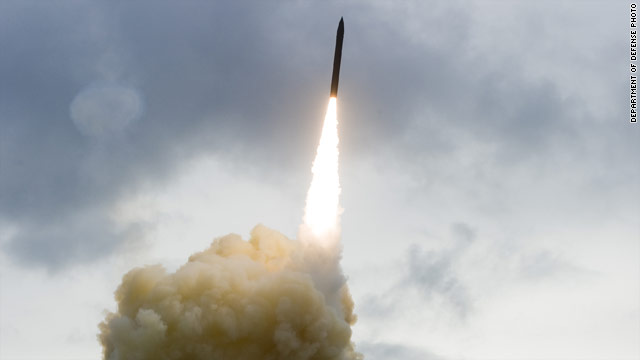
From Bruce Klingner and Sally McNamara, CNN: Ballistic missiles pose an increasing risk to the United States and its allies, particularly as more nations strive to acquire nuclear weapons. The once exclusive nuclear weapons club now has nine members, and Iran is knocking on the clubhouse door. Altogether, at least 32 countries have ballistic missile capabilities.
Defending the United States, its forward-deployed troops, and its friends and allies against such threats should be a national security priority for the U.S. president. We have a fledgling missile defense capability. But further investment, research and procurement are needed to truly realize a fully effective ballistic missile defense (BMD) system. . . .
Many NATO members have taken tentative steps to build components of what could eventually become a comprehensive missile defense architecture, such as the Patriot air defense system. However, European nations must do more to adequately protect their populations and territory from the risk of missile attack.
Turkey, Poland and Romania have all recently agreed to host elements of the U.S.’s missile defense architecture. As important as these bases will be, Europe’s contribution to transatlantic-wide missile defense must be about more than hosting U.S. sensors and interceptors. Truly effective BMD requires a layered approach capable of intercepting missiles in all phases of flight – boost, midcourse and terminal. Linking together members’ capabilities into a coordinated, layered defense is estimated to be just €200 million ($279 million) over 10 years.
Given the increasing global missile threat, the U.S. must reverse the budget cuts proposed for missile defense programs. Instead, we must significantly strengthen the land, sea and air components of U.S. missile defense.
A comprehensive missile defense would not only protect the American homeland, but also reassure our friends and allies. Missile defense contributes to regional peace and stability and supports international nonproliferation efforts by reducing other nations’ perceived need to acquire nuclear weapons. It is a win-win solution to one of today’s greatest security threats.
Bruce Klingner is senior research fellow in the Asian Studies Center at The Heritage Foundation. Sally McNamara is senior policy analyst in Heritage’s Thatcher Center for Freedom. (photo: Department of Defense)
Image: cnn%2011%2021%2011%20.missiledefensetest.jpg
